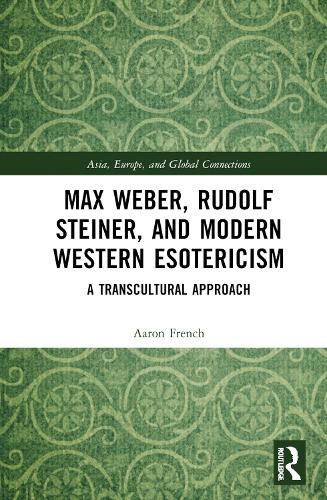Readings Newsletter
Become a Readings Member to make your shopping experience even easier.
Sign in or sign up for free!
You’re not far away from qualifying for FREE standard shipping within Australia
You’ve qualified for FREE standard shipping within Australia
The cart is loading…






This book challenges previous definitions of modernity by comparing Max Weber (1864-1920), often considered the most important sociologist of the 20th century, and Rudolf Steiner (1861-1925), founder of Waldorfpaedagogik and the esoteric social reform movement of anthroposophy.
While acknowledging that Weber and Steiner were different in several respects, this research illustrates that the individual histories of these two thinkers are more entangled than previously recognized. This includes the influence of esotericism on their thinking, as well as their profound concern with science and technological change and an openness to the religious and philosophical concepts of the civilizations of South and East Asia.
Demonstrating the importance of non-European influences for a full understanding of modernity, this book will be a valuable resource for students and scholars of Asian and European philosophy, social theory, and Asian society.
$9.00 standard shipping within Australia
FREE standard shipping within Australia for orders over $100.00
Express & International shipping calculated at checkout
This book challenges previous definitions of modernity by comparing Max Weber (1864-1920), often considered the most important sociologist of the 20th century, and Rudolf Steiner (1861-1925), founder of Waldorfpaedagogik and the esoteric social reform movement of anthroposophy.
While acknowledging that Weber and Steiner were different in several respects, this research illustrates that the individual histories of these two thinkers are more entangled than previously recognized. This includes the influence of esotericism on their thinking, as well as their profound concern with science and technological change and an openness to the religious and philosophical concepts of the civilizations of South and East Asia.
Demonstrating the importance of non-European influences for a full understanding of modernity, this book will be a valuable resource for students and scholars of Asian and European philosophy, social theory, and Asian society.